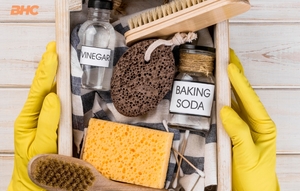How to Safely Dispose of Household Cleaning Chemicals
Cuerpo
Most households rely on a wide range of cleaning products to maintain hygiene and freshness. While these products are effective, they often contain harsh ingredients that can pose risks to both your family and the environment if not handled correctly. That’s why knowing how to properly dispose of old or unused cleaning chemicals is essential. Many families turn to professional cleaner Brisbane services for advice on safe handling, but you can also take simple steps at home to manage disposal responsibly.
Why Proper Disposal Matters
Improper disposal of cleaning chemicals—such as pouring them down the sink or tossing them in household bins—can create serious problems. Chemicals can contaminate waterways, harm wildlife, and even cause damage to your plumbing. More importantly, mishandling may create health risks for children and pets. Following safety guidelines ensures you protect your home, your community, and the environment.
Identify Hazardous Waste
The first step is recognizing what counts as hazardous waste. Products like bleach, ammonia, oven cleaners, drain uncloggers, and disinfectants contain strong compounds that must never be disposed of casually. Always check the product label for warnings such as toxic, flammable, or corrosive. These items require extra care.
Eco-Friendly Disposal Methods
For households committed to sustainability, there are several eco-friendly disposal options to consider:
- Community Collection Points – Many councils in Brisbane provide drop-off facilities for hazardous cleaning products.
- Hazardous Waste Days – Keep an eye out for scheduled collection events where specialists handle chemical waste safely.
- Use Approved Containers – If you must store chemicals before disposal, keep them in their original labeled packaging.
- Consider Green Alternatives – As you use up traditional cleaners, switch to natural options like vinegar, baking soda, or lemon juice to reduce the need for hazardous disposal in the future.
General Safety Guidelines
When dealing with cleaning chemicals, remember these essential safety guidelines:
- Never mix products, as dangerous reactions can occur.
- Wear gloves and eye protection when handling strong cleaners.
- Keep chemicals away from children and pets until properly disposed of.
- Avoid pouring chemicals onto the ground, into storm drains, or down toilets.
When to Seek Professional Help
If you’re unsure about handling large volumes of cleaning waste or dangerous substances, consider reaching out to a cleaner Brisbane provider. Many professional cleaning services can advise on proper disposal methods or even handle them for you, ensuring compliance with local regulations.
Final Thoughts
Safely disposing of household cleaning chemicals is about more than clearing space under your sink—it’s about protecting your health, your home, and the environment. By recognizing hazardous waste, following eco-friendly disposal options, and sticking to proven safety guidelines, you can make sure your cleaning routine is responsible as well as effective. For extra peace of mind, don’t hesitate to consult with professional cleaners in your area who can guide you through the process.








Comentarios